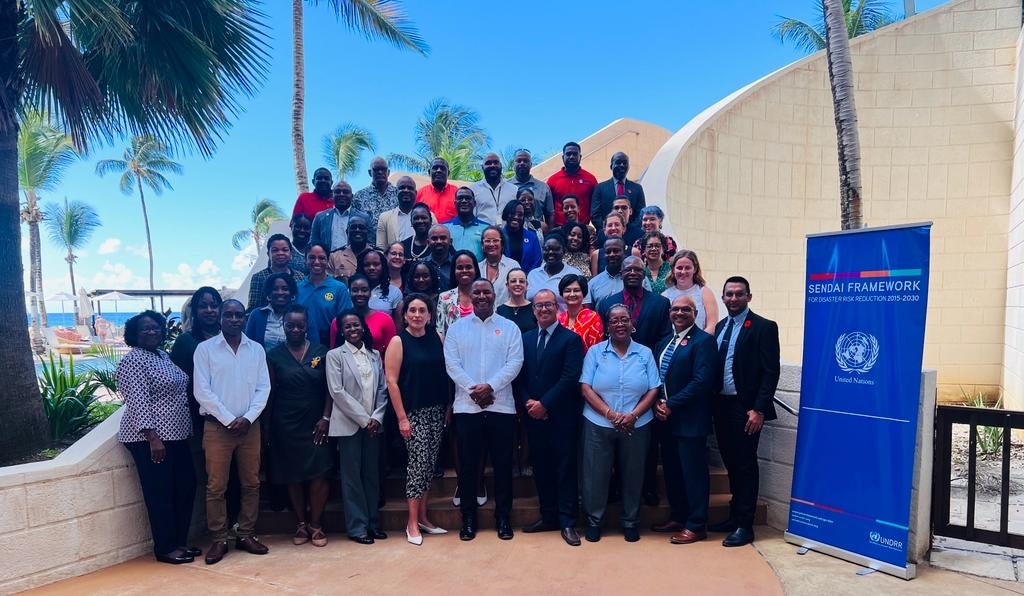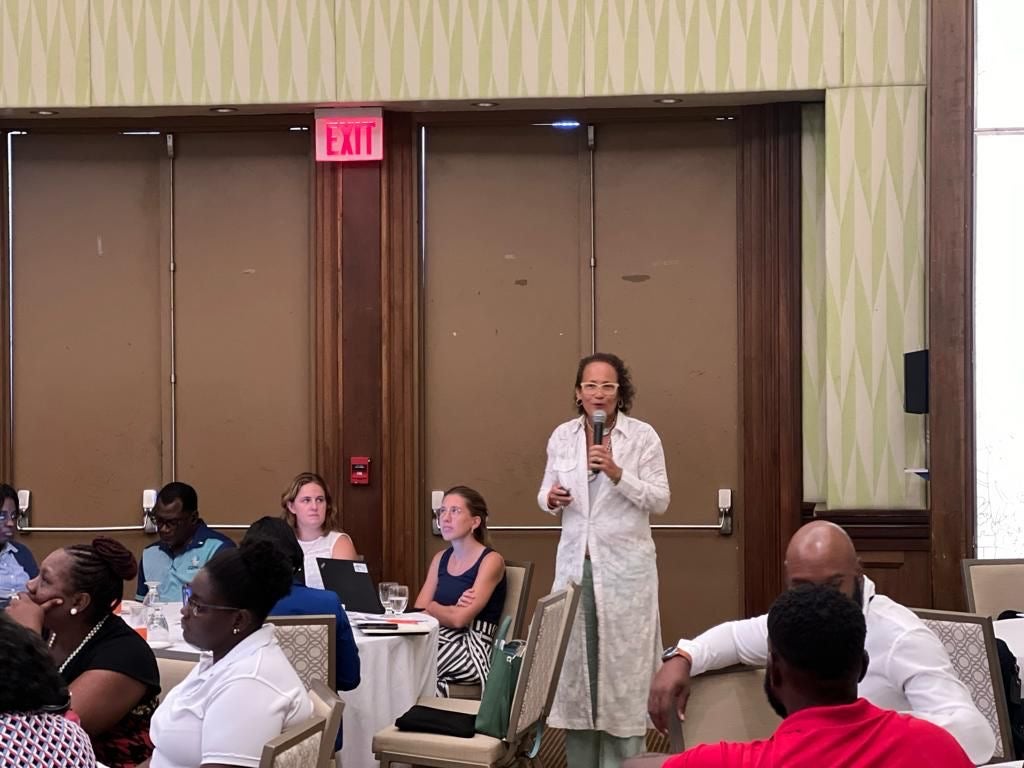Engendering public warning systems to take into account the specific and different risks women and men face when hazards occur
Date:

Photos compliments UNDRR: Anwar Baksh
Bridgetown, Barbados, November 2023: Barbados earlier this month held a national consultation with key stakeholders to build on its public warning system recognising that the island faces various hazards that can pose risks to its population, infrastructure, environment and development progress.
The context for Barbados’ hazard risk is explained that because of its unique location in the hurricane-prone Atlantic basin, Barbados is at risk of hurricanes and tropical storms which can bring strong winds, heavy rainfall, storm surges, and flooding, leading to damage to homes, infrastructure, and agriculture. Urban areas, particularly in low-lying coastal regions, can be vulnerable to flooding, causing damage to homes, roads, and public utilities.
The meeting reviewed the existing multi-hazard early warning gap analysis and implementation plan developed by the Department of Emergency Management through a stocktaking of existing actions, initiatives, existing gaps and challenges. The outcome of which was to develop a detailed and action-oriented implementation plan that would translate early warning systems into risk-informed early action.
The meeting was in response to the UN Secretary General’s Early Warning for All Initiative (EW4ALL), calling for every person on Earth to be protected by early warning systems by 2027.

Nadia Manning-Thomas, UN Women MCO Caribbean Planning and Coordination Specialist and thematic lead for Gender-responsive Climate Change and Disaster Risk Resilience, presented on the differential impact of disasters for women, girls, boys and men, and the importance of establishing a gender perspective in Early Warning Systems. She highlighted the findings of the UN Women and IISD reports on Gender Inequality and Differential Impact of Climate Change and Disaster Risk and Cost of Inaction for several Caribbean countries.
The reports detail how natural hazards and climate change impact men and women differently because of a host of factors, including their different roles and individual and family responsibilities, and policy development and service delivery by mandating bodies. They were produced under the Global Affairs Canada and UKFCDO-funded EnGenDER Project.
The UN Women Specialist also demonstrated how a gap analysis should be conducted as part of efforts towards achieving gender-transformative disaster risk management.
The meeting was held under the leadership of the United Nations Office for Disaster Risk Reduction (UNDRR) and World Meteorological Organization (WMO). The UNDRR and WMO are coordinating national consultations in 30 at-risk countries globally, including four Caribbean states: Antigua and Barbuda, Barbados, Guyana and Haiti.
The discussions took place in the context of the initiative’s four pillars;
- Pillar 1: Risk Knowledge and Management
- Pillar 2: Observation, Monitoring and Forecasting
- Pillar 3: Warning Dissemination and Communication
- Pillar 4: Preparedness to Respond

Grainne Ahern, UN Women Programme Assistant for Gender-responsive Climate Change and Disaster Risk Resilience presented the gap analysis for warning dissemination and communication. This speaks to ensuring public warnings from official sources are easily recognised, and that relaying this information reaches all people at risk, especially the most vulnerable.
UN Women MCO Caribbean will continue to actively engage in the upcoming regional consultations in Antigua and Barbuda and Guyana. The United Nations Office for Disaster Risk Reduction (UNDRR) and World Meteorological Organization (WMO) EW4ALL, launched the Early Warning Systems for All (EW4ALL) in Barbados by UN Special Representative Mami Mizutori in February 2023.
